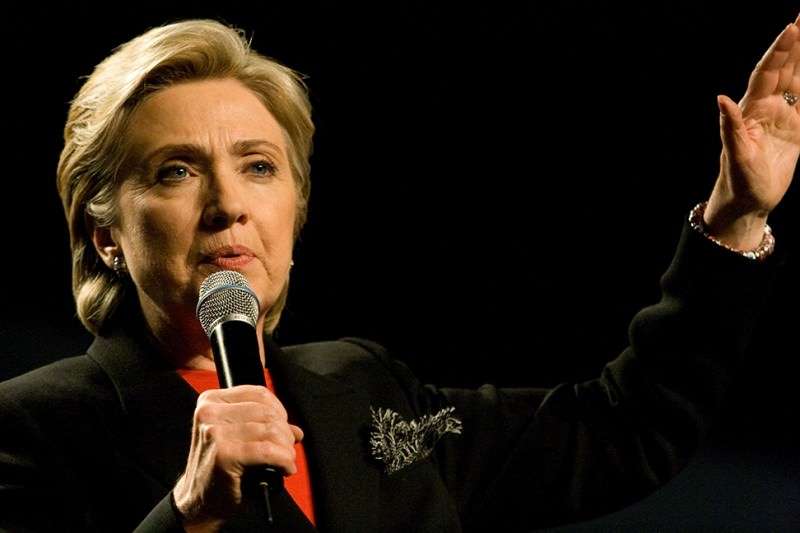Hillary Clinton Tweets: "I Want the Public to See My Email." She Doesn't.

At 11:35 p.m. eastern time last night, Hillary Clinton offered her first response to the email scandal that has made front-page news over the last several days, in which it was revealed that Hillary Clinton relied exclusively on a personal, privately controlled email account to conduct business while Secretary of State, contrary to federal records rules.
"I want the public to see my email, " she wrote in the Tweet. "I asked State to release them. They said they will review them for release as soon as possible."
Obviously the best way to ensure that a public official's emails are seen by the public is to hide them on a privately managed server.
Anyway, it's nice, I suppose, that Clinton asked State to review and release her emails, but it's also totally beside the point. The problem is that the Department of State didn't have all of her emails to begin with.
Instead, according to The New York Times, trusted Clinton aides recently reviewed her emails and turned over some 55,000 pages of them to the Department of State. So, at very best, Clinton is asking State to turn over emails that her staffers have already weeded through and marked as potentially acceptable for public consumption.
What we need to see are the other emails—the full batch of written electronic communications she sent and received in her professional capacity as Secretary of State, unedited by her politically minded staff.
It is incredibly hard to justify Clinton's decision to keep those emails out of public view and uncollected by federal recordkeeping. As a former director of litigation at the National Archives and Records Administration told The New York Times when the story first broke, "It is very difficult to conceive of a scenario — short of nuclear winter — where an agency would be justified in allowing its cabinet-level head officer to solely use a private email communications channel for the conduct of government business." Yet that is exactly what Clinton did. (You may note there was no nuclear winter in the last six years.)
That Clinton took unusual and perhaps out-of-bounds steps to hide her emails only makes it more important that they now be accessible to the public. In context, her tweet suggests that, contrary to her stated desire to see her emails made accessible to the public, she prefers to hide many of her electronic communicatations from public scruntiny.


Show Comments (175)